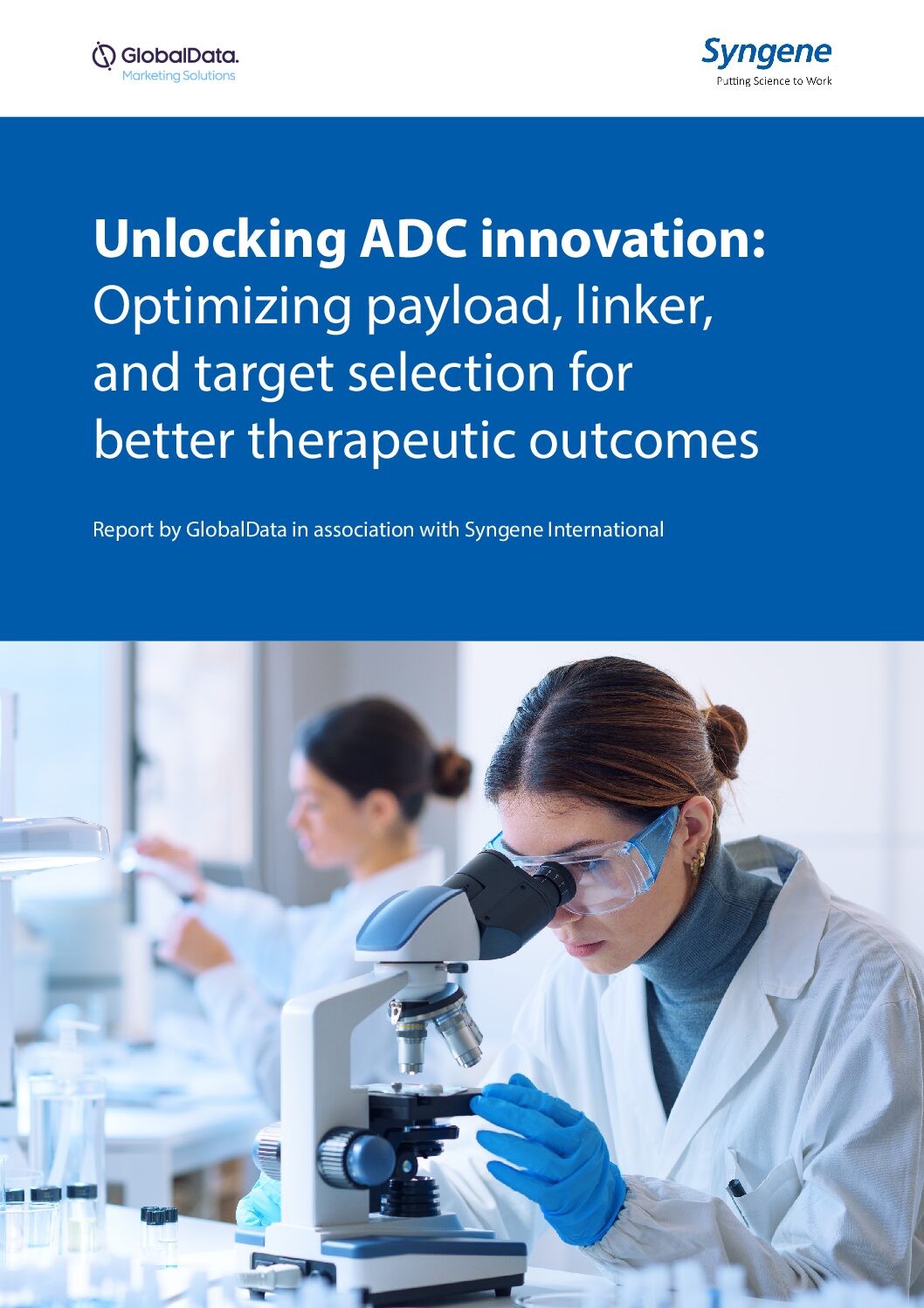

Denmark-based Adcendo is the latest biotech to secure funding in the antibody-drug conjugate (ADC) space, raising $135m to advance its portfolio of first-in-class ADCs into the clinic.
Founded in 2017 as a spin-out from the University of Copenhagen and Rigshospitalet, Adcendo previously raised $102.8m (€98m) in an extended Series A funding round backed by Novo Holdings and RA Capital Management. This latest round, led by TCGX, is intended to accelerate the development of the biotech’s four ADC candidates.

US Tariffs are shifting - will you react or anticipate?
Don’t let policy changes catch you off guard. Stay proactive with real-time data and expert analysis.
By GlobalDataIn October, Adcendo announced that the US Food and Drug Administration (FDA) had cleared its investigational new drug (IND) application for a Phase I/II first-in-human trial of ADCE-D01. This ADC targets the UPABAR receptor in patients with metastatic and/or unresectable soft tissue sarcoma (STS).
Earlier this year, Adcendo signed a $1bn agreement with Multitude Therapeutics for the ex-China rights to ADCE-T02, a preclinical candidate. The deal grants Adcendo global development and commercialisation rights, excluding Greater China (mainland China, Hong Kong, Macau, and Taiwan). A Phase I trial for ADCE-T02 is scheduled to begin in Australia in Q4 2024, with plans for additional trials in the US and Europe. The company is also advancing two other ADC candidates, ADCE-B05 and A0401, with undisclosed targets.
The ADC field has seen substantial growth, with companies investing billions to expand their pipelines. In October 2023, MSD and Daiichi Sankyo entered into a deal worth up to $22bn to develop and commercialise three ADC candidates: patritumab deruxtecan (HER3-DXd), ifinatamab deruxtecan (I-DXd), and raludotatug deruxtecan (R-DXd). In May 2024, AstraZeneca announced plans to construct a $1.5bn ADC manufacturing site in Singapore to bolster the global supply of ADCs.
More than ten ADCs have received regulatory approval for the treatment of certain cancers. Daiichi Sankyo and AstraZeneca’s ADC Enhertu (trastuzumab deruxtecan) secured its first approval in 2019 for the treatment of adult patients with unresectable or metastatic HER2-positive breast cancer who have received two or more prior anti-HER2-based regimens in the metastatic setting. The blockbuster drug is now approved for more solid tumours and is set to generate up to $13bn in 2030, as per GlobalData’s consensus forecast.
GlobalData is the parent company of Pharmaceutical Technology.
Despite Enhertu’s success, pricing issues across the pond in the UK have limited its reach. Talks between the UK’s National Institute for Health and Care Excellence (NICE), NHS England, and the drugmakers, failed to end in a negotiated fair price last week (20 November).
ADC content on Pharmaceutical Technology (Or Clinical Trials Arena) is supported by Syngene. Editorial content is independently produced and follows the highest standards of journalistic integrity. Topic sponsors are not involved in the creation of editorial content.






